From studying new Alzheimer’s disease treatments and associated genetic testing to racial disparities in maternal health outcomes, to prescribing trends across different medications for different conditions, to a first-of-its-kind comparative effectiveness study on weight loss related to Ozempic and Mounjaro, Truveta Research has provided concrete examples of the various types of research possible with Truveta, and has brought us closer to achieving our mission of Saving Lives with Data.
Here, we’ll look at some of Truveta Research’s greatest hits of 2023.
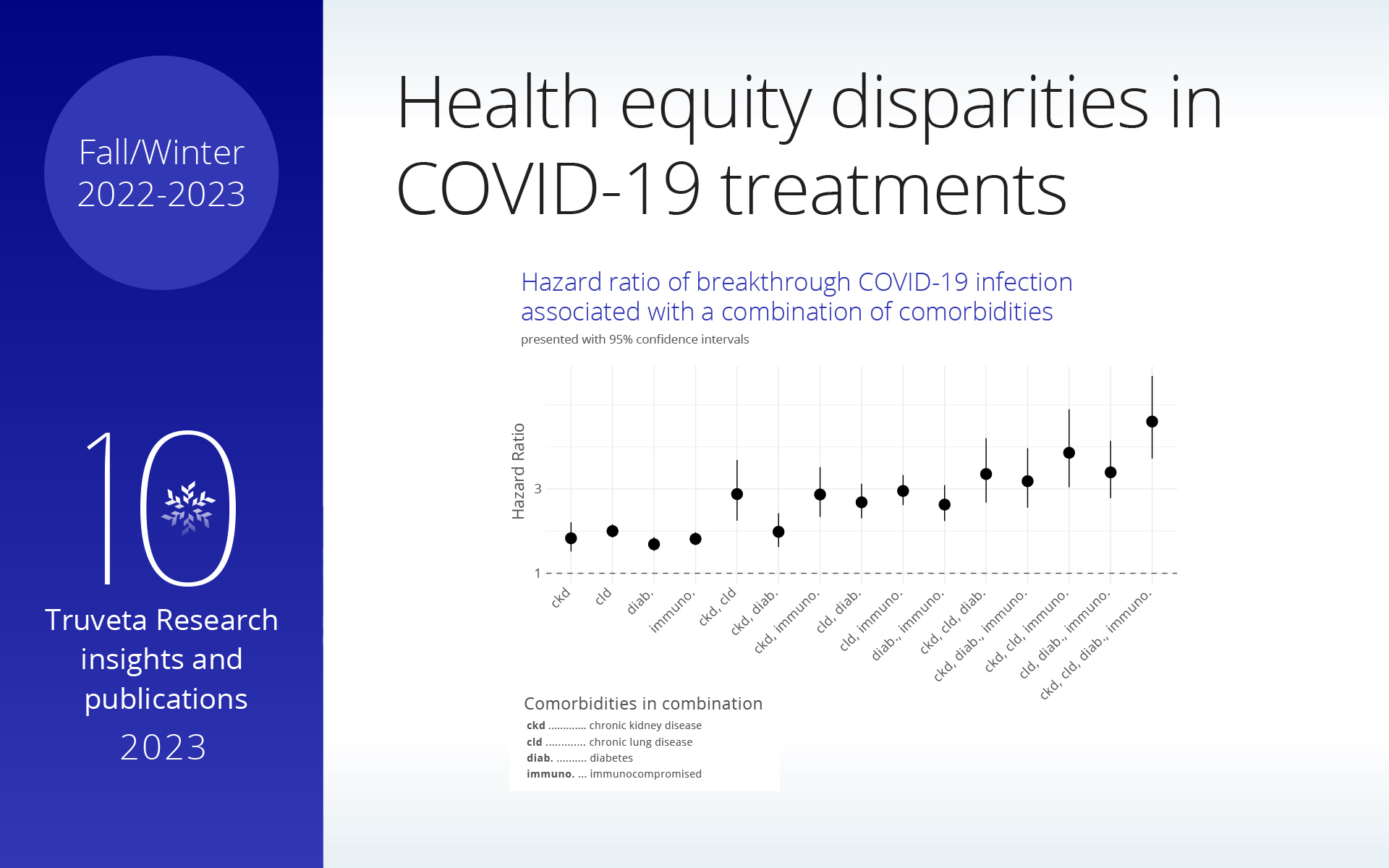
Fall/Winter 2022-2023: Health equity disparities in COVID-19 treatments
In the spring, Truveta Research published another peer-reviewed COVID-19 study in Vaccine, related to the risk of COVID-19 breakthrough injections and hospitalizations for patients with comorbidities including chronic kidney disease, chronic lung disease, diabetes, or an immunocompromised state.
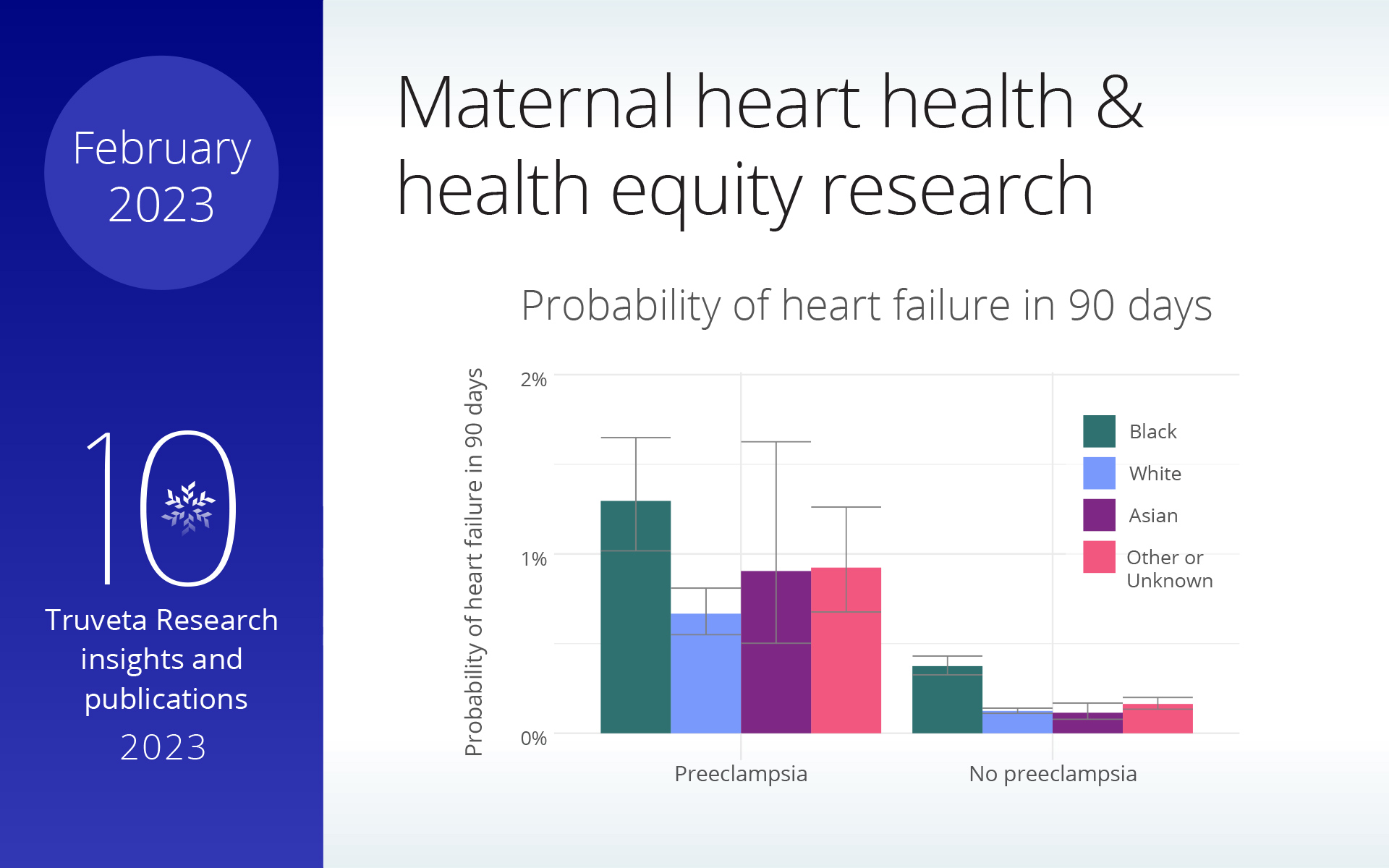
February 2023: Maternal heart health & health equity research
Women who had pre-eclampsia when they delivered are also at high risk of developing heart failure after childbirth, and Black women are at double the risk of white women, according to new findings by Truveta Research, the research arm of Truveta, a for-profit collective of health systems that uses de-identified patient data for research.
Though the reasons for the disparity are not known, some may be caused by unequal access to care and by the failure of care givers to listen when women report unusual symptoms, Dr. Charlotte Baker, Truveta’s director of epidemiology, said. Dr. Baker lost a friend to the condition just months after the friend gave birth.
“My friend had complained multiple times to her physicians, but they brushed her off,” she said.
This research is now available as a pre-print on MedRxiv and expanded to include those with disabilities as well.
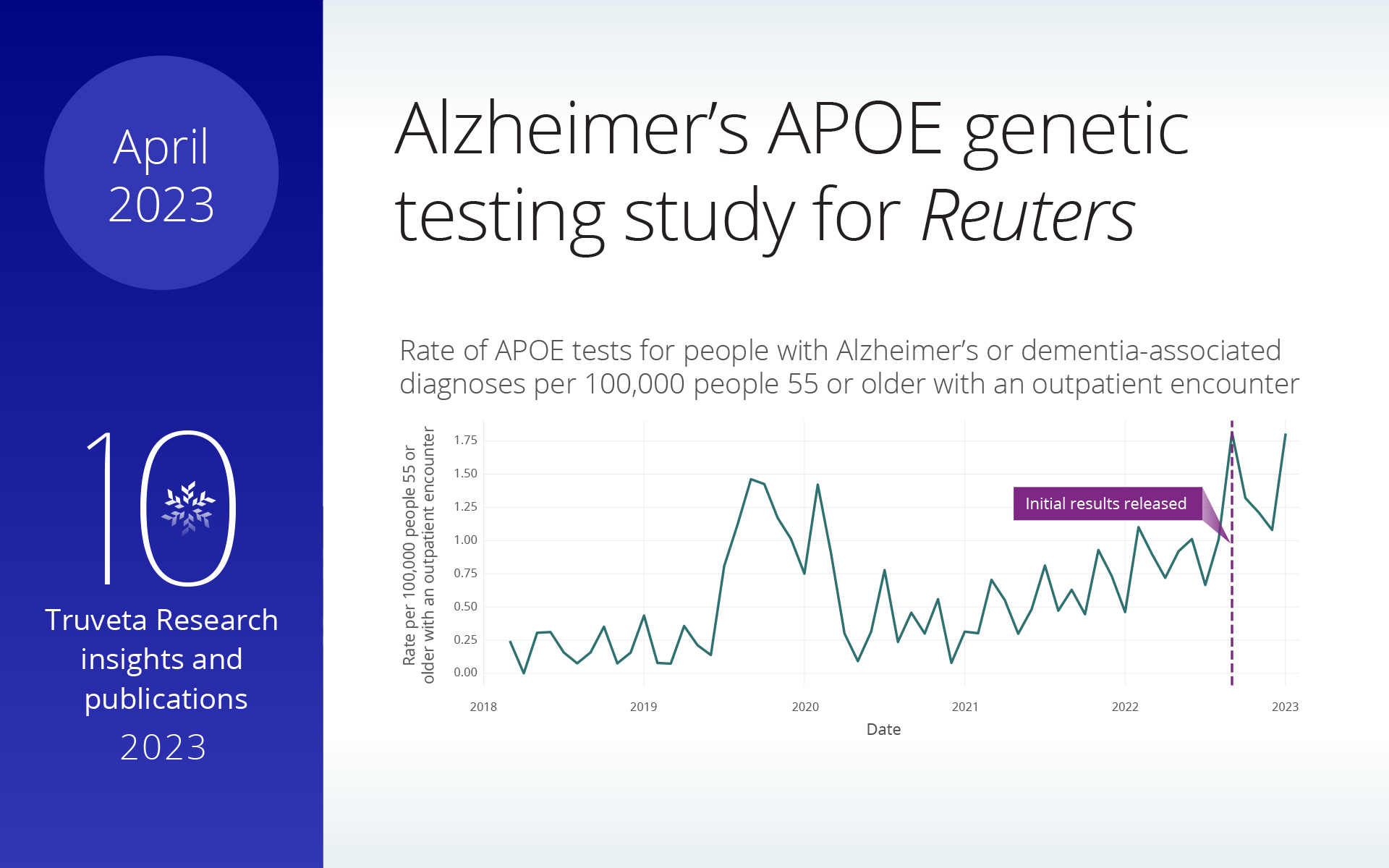
April 2023: Alzheimer’s APOE genetic testing study for Reuters
Testing for the APOE4 gene variant among Americans being treated for Alzheimer’s has more than doubled from a year ago, an exclusive analysis of medical records for Reuters by health data firm Truveta found. The increase was driven by the new treatments that promise to slow the progression of the disease, but also carry risks, especially for people like Nelson carrying two copies of APOE4.
Truveta Research’s full insights on increases in APOE genetic testing related to Alzheimer’s Disease were published to our blog. Recent updates on the genetic testing trends and the new uptick in lecanemab prescriptions were also presented this fall at ISPOR Europe in Copenhagen.
Learn more about the data we have available on patients with Alzheimer’s disease.
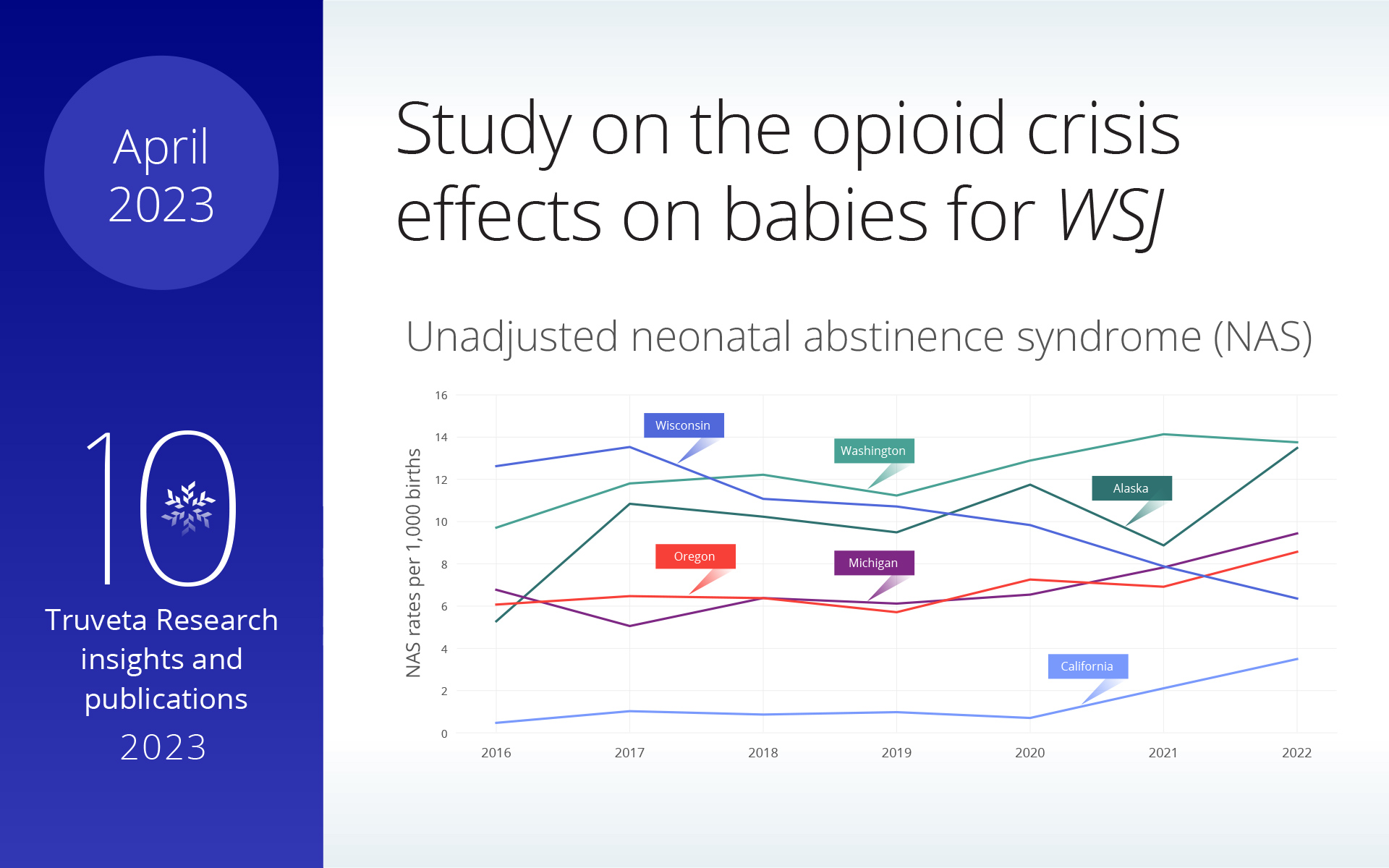
April 2023: Study on the opioid crisis effects on babies for WSJ
The number of newborns in opioid withdrawal has risen in recent years as illicit fentanyl has supercharged the potency of the illicit drug market. About six in 1,000 babies have been born drug-dependent in each year since 2017, according to an analysis from healthcare-data company Truveta. The rate in 2009 was half that, federal data show.
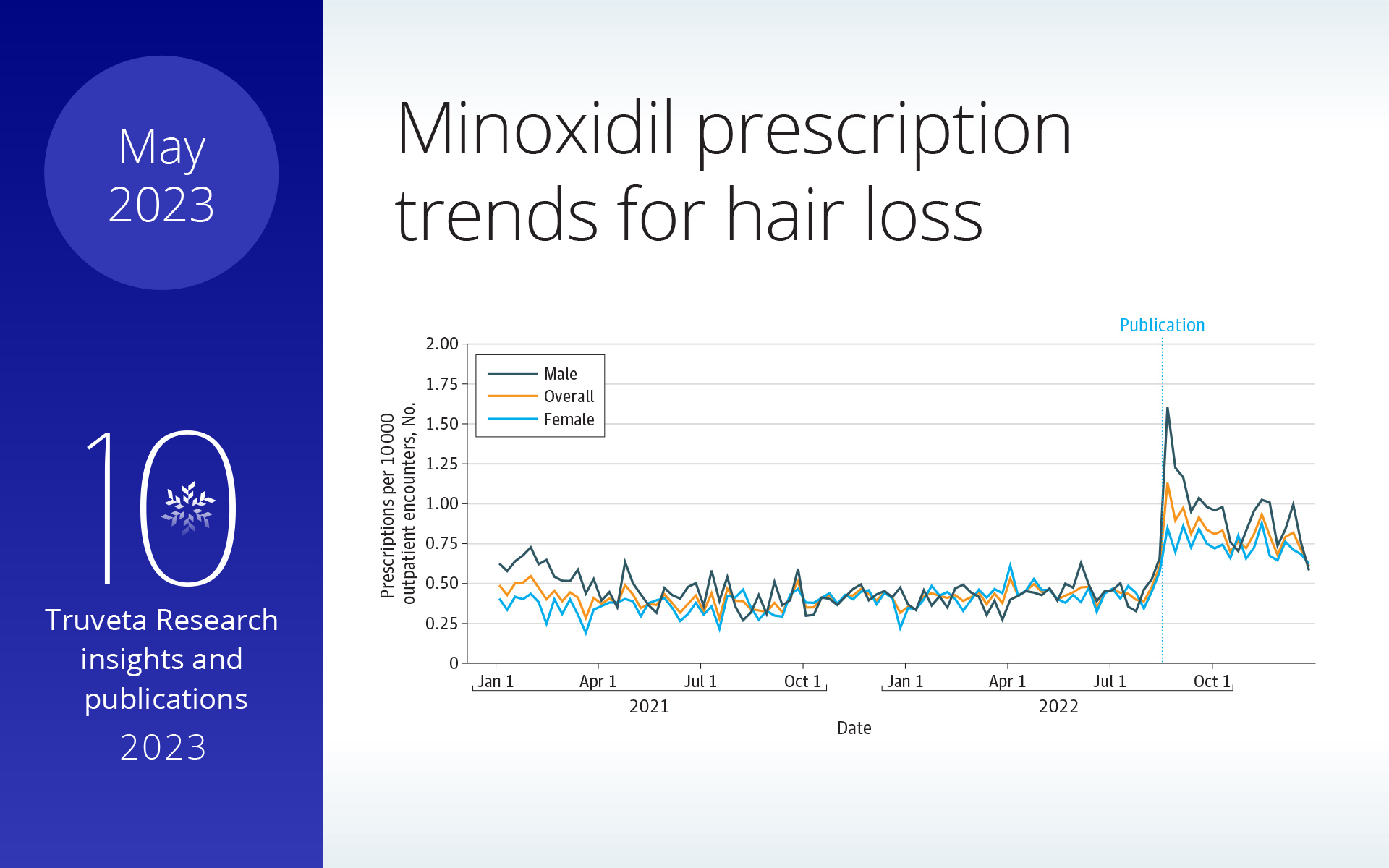
May 2023: Minoxidil prescription trends for hair loss
As suspected, there was indeed a significant increase in oral prescriptions for minoxidil following the NYT piece, and the research was published in JAMA Network Open.
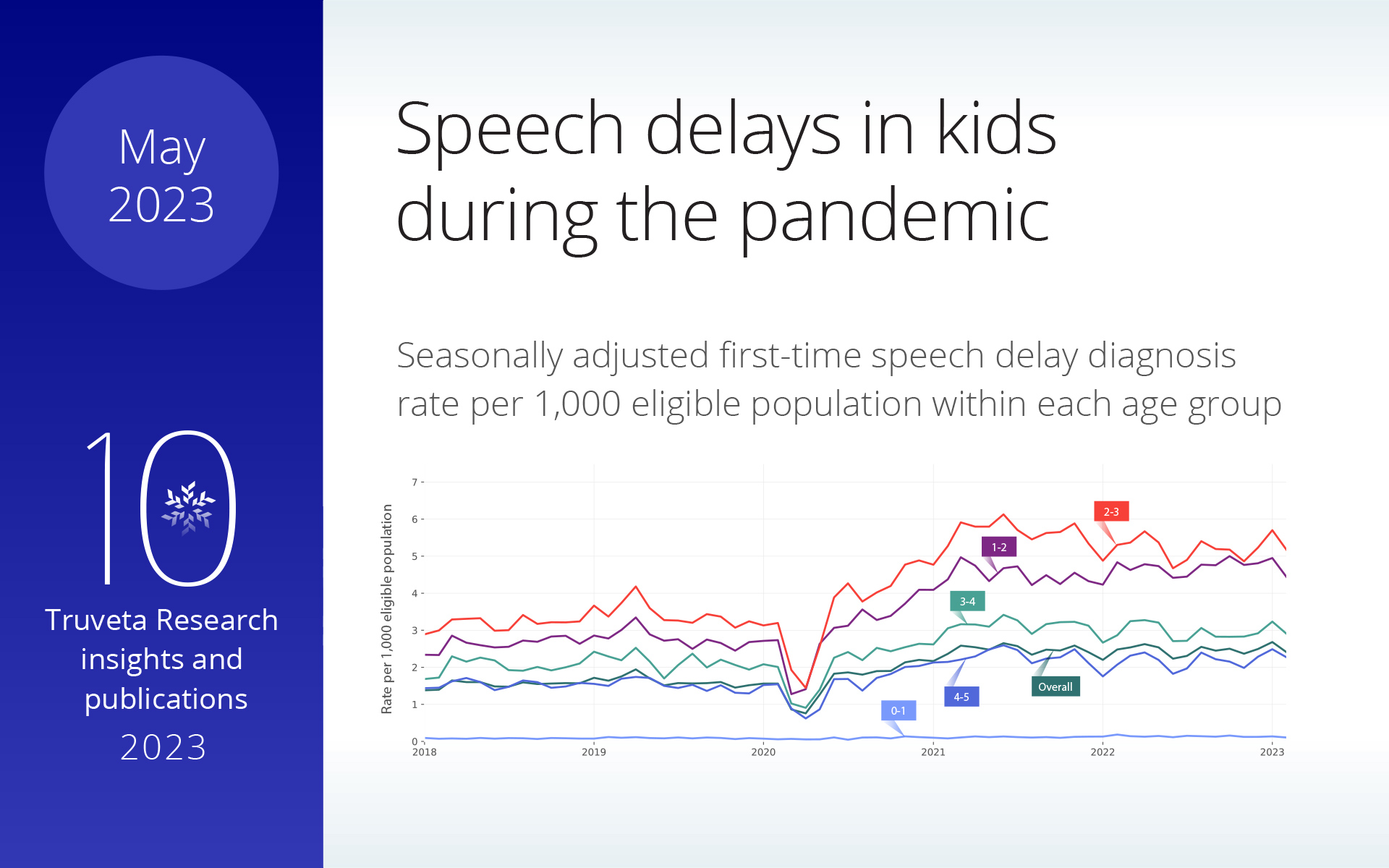
May 2023: Speech delays in kids during the pandemic
Their insights on this topic were included in a Wall Street Journal piece in May:
In an analysis of nearly 2.5 million children younger than 5 years old, researchers at health-analytics company Truveta found that for each year of age, first-time speech delay diagnoses increased by an average of 1.6 times between 2018-19 and 2021-22. The highest increase was among 1-year-olds, the researchers said.
Truveta Principal Research Analyst Brianna Cartwright explained how the team was able to generate these findings, and the study was recently published in JAMA Pediatrics.
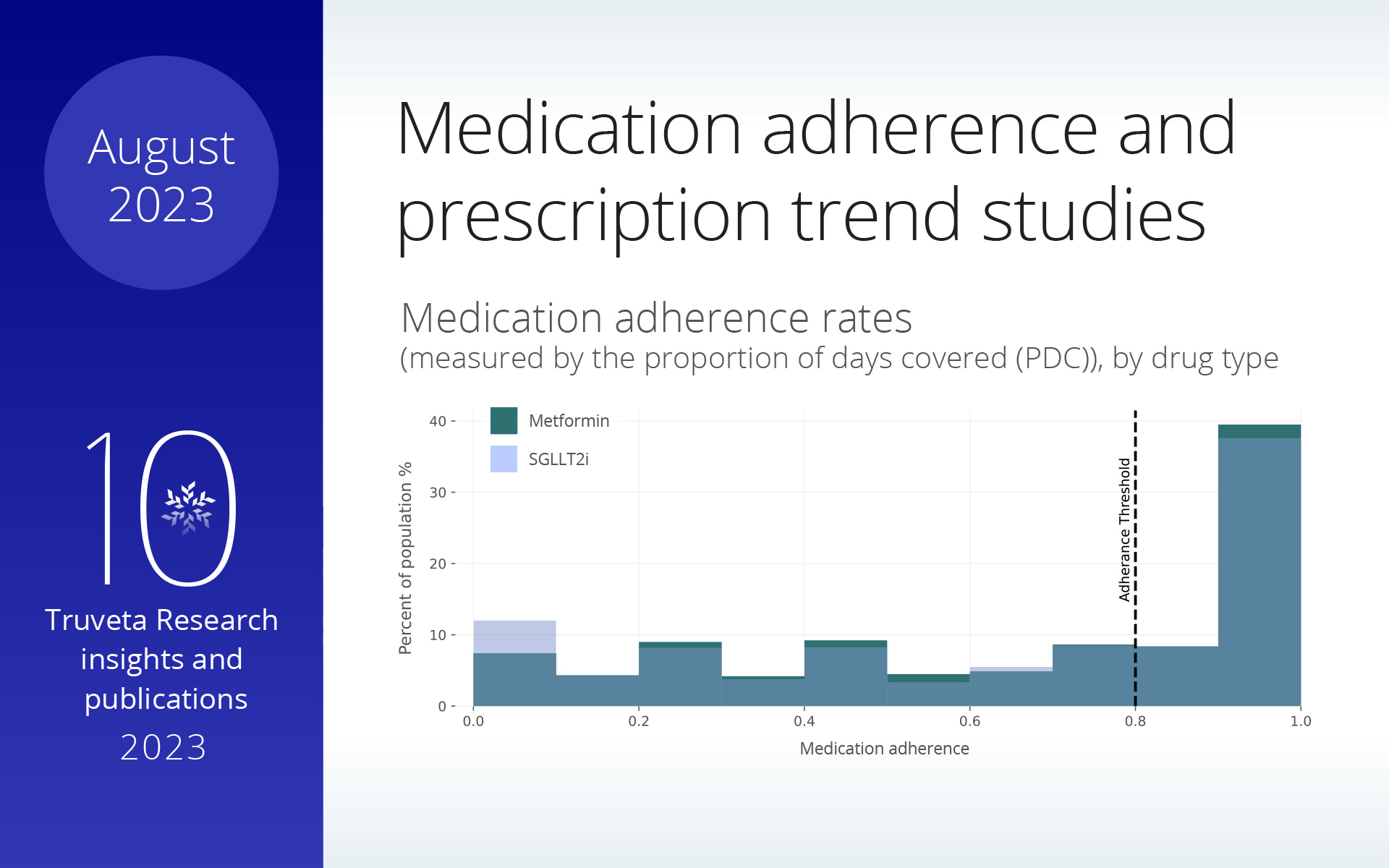
August 2023: Medication adherence and prescription trend studies
- Part one focused on variations in medication adherence among patients with type 2 diabetes
- Part two explored whether there may be a correlation between social drivers of health (SDOH) – like income and housing stability – and patients consistently taking their medication as prescribed
- Part three examined SDOH factors again, this time applying them to see whether they play a role in medication adherence among patients taking common autoimmune treatments adalimumab (Humira) and etanercept (Enbrel)
Truveta Research also explored prescribing trends in a few cases this year. First, they focused on prescribing patterns of two commonly-prescribed SGLT2i drugs, Jardiance and Farxiga, and the demographics and comorbidities that make type 2 diabetes patients more likely to receive one or the other, even with data in the month that Farxiga was also approved to also treat heart failure.
Then they examined on- and off-label prescribing trends around popular weight loss injectables Wegovy, Ozempic, and Mounjaro, which is also available as a pre-print on MedRxiv.
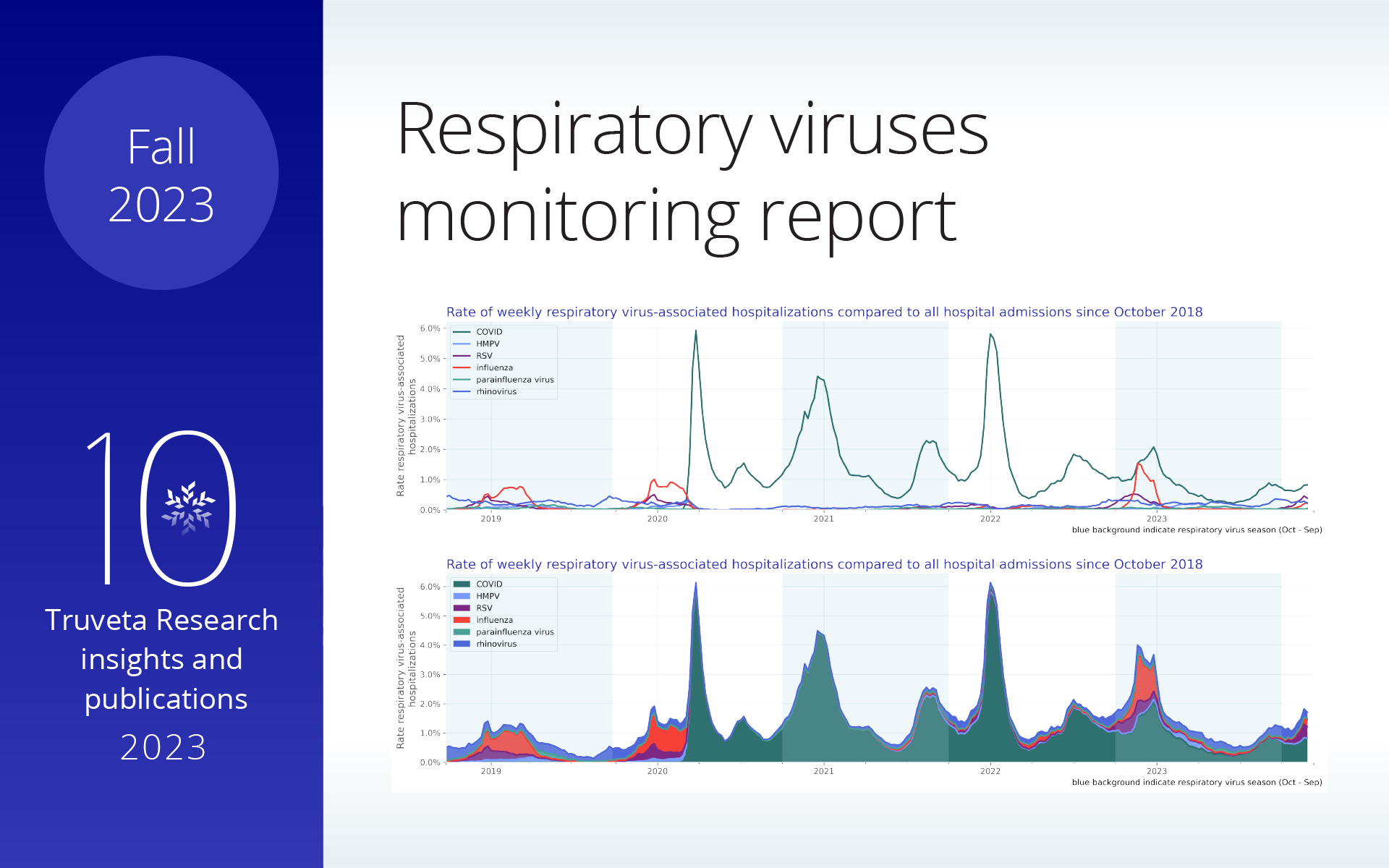
Fall 2023: Respiratory viruses monitoring report
For the second year in a row, Truveta Research has been hard at work publishing regular monitoring reports on common respiratory viruses throughout the fall and winter. These reports examine the six most common respiratory viruses – including COVID-19, the flu, and RSV – and their rates of hospitalizations across various demographics.
With fall and winter holiday gatherings, many people have questions about infection rates in their area and need data like this to decide whether to mask, social distance, or stay home. Insights related to the monitoring report have been reported on by outlets such as POPSUGAR.
Truveta Research also published a COVID-19-specific insight based on monitoring report findings this summer, and two of our staff MDs provided guidance to the public on the best ways to stay healthy and avoid COVID-19 and RSV in a blog post in late September.
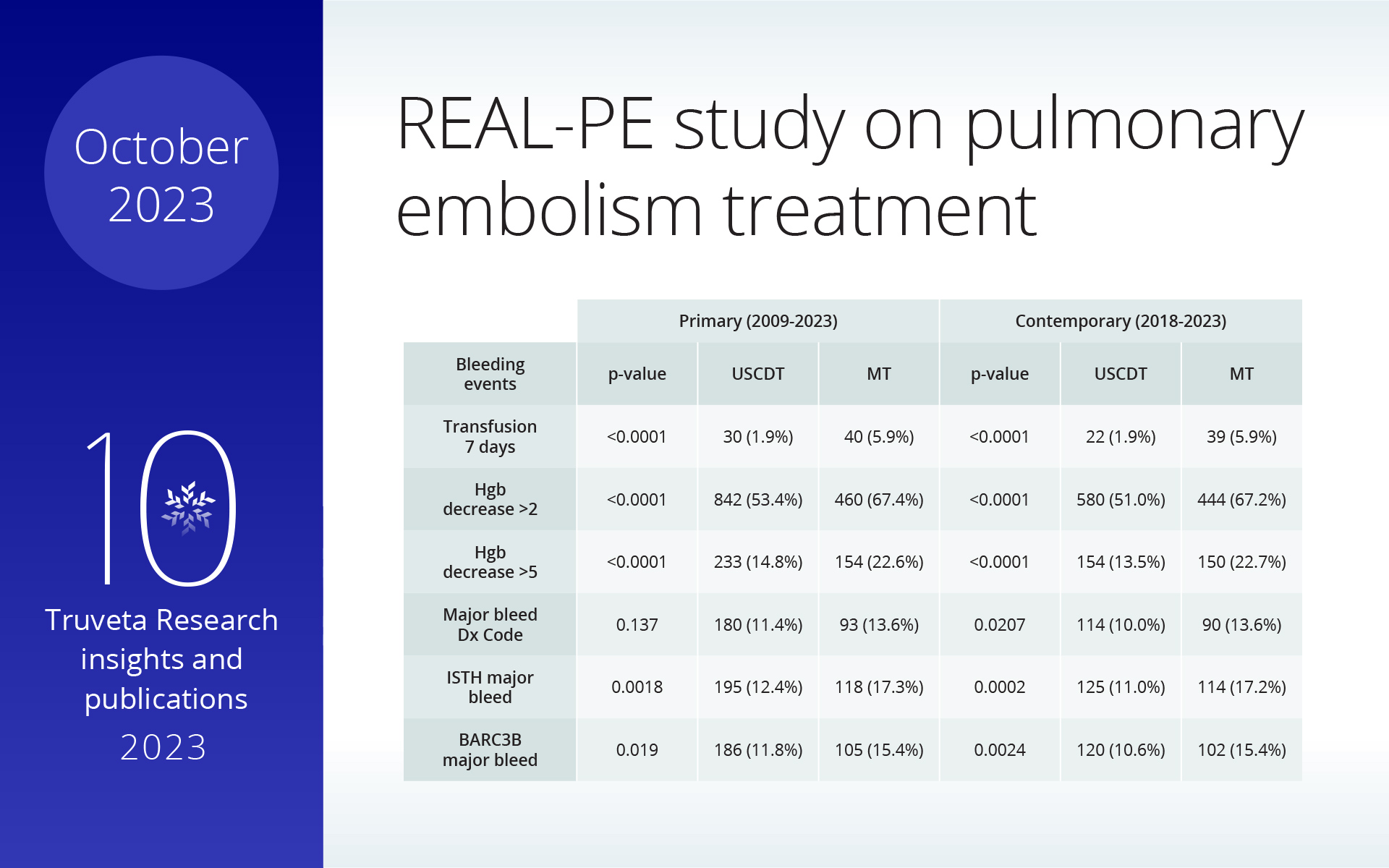
October 2023: REAL-PE study on pulmonary embolism treatment
Dr. Monteleone, along with researchers from Truveta and other organizations, published these findings in JSCAI. The work was covered in trade publications like Cardiovascular News.
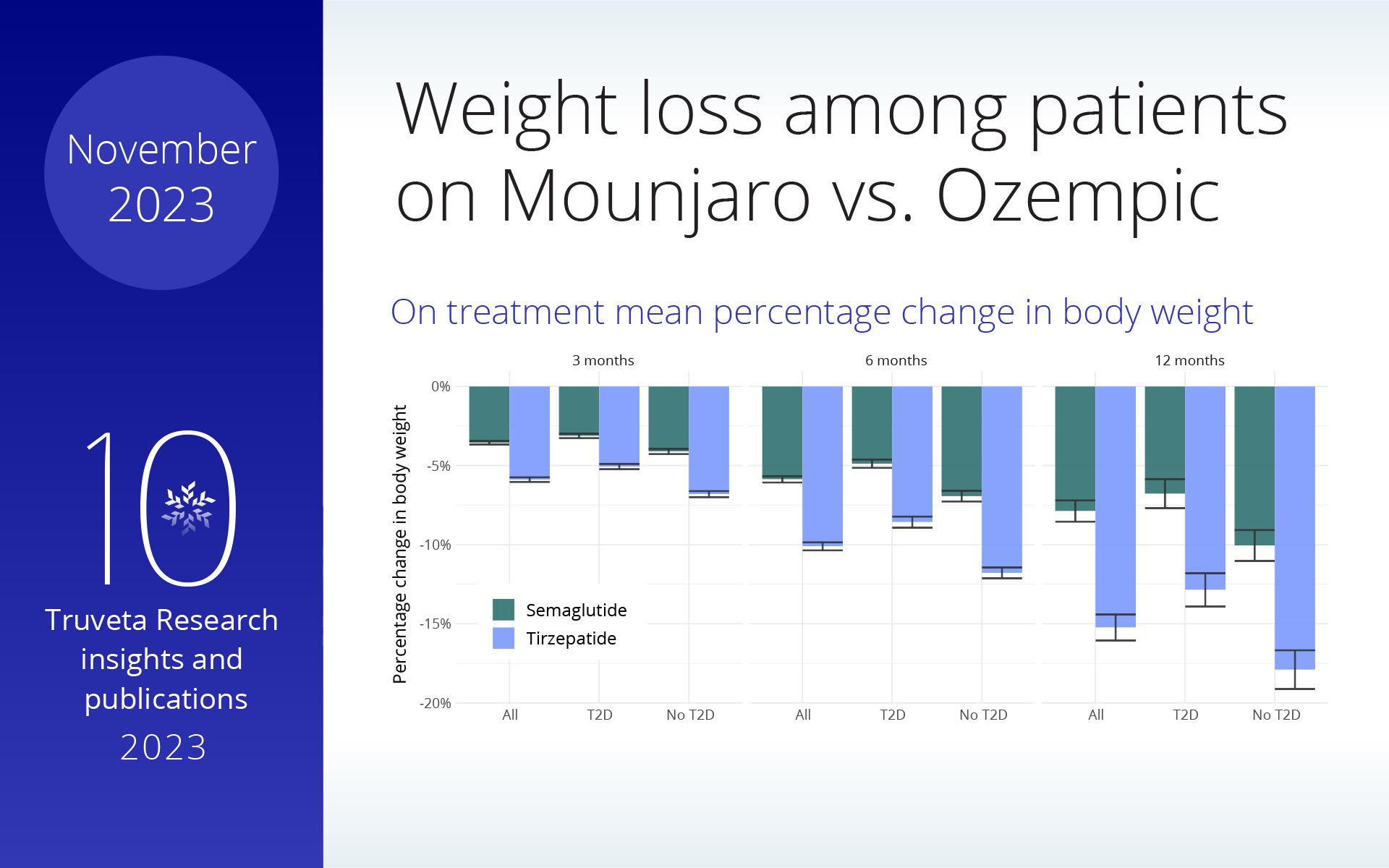
November 2023: Weight loss among patients on Mounjaro vs. Ozempic
The study showed that patients taking Mounjaro are up to three times more likely to lose weight.
Given the popularity of these injectables for their weight loss effects, this study was widely covered in the media, appearing on The TODAY Show, CNBC, CNBC Fast Money, com, CNN, Scripps News, and more.
